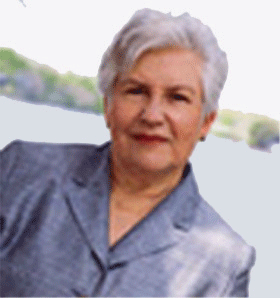Gloria F. Donnelly, Ph.D., RN, FAAN, FCPP
Dean and Professor, College of Nursing and Health Profession
Drexel University
Editor in Chief, Holistic Nursing Practice
Background:

Gloria F. Donnelly, PhD, RN, FAAN
Gloria Ferraro Donnelly, a leader in nursing education, both regionally and nationally, is Dean of the College of Nursing and Health Professions at Drexel University. Before coming to Drexel University, she served as founding Dean of the School of Nursing, La Salle University, Philadelphia, PA. A native Philadelphian, Dr. Donnelly earned her Bachelor of Science in Nursing from Villanova University, Villanova, PA. She holds a Master of Science in Nursing from the University of Pennsylvania, School of Nursing with specializations in psychiatric nursing and nursing education. In 1985 she was awarded a federal National Service Research Pre-Doctoral Fellowship to attend Bryn Mawr College where she received the Ph.D. in Human Development in 1985.
Dr. Donnelly is the author of four textbooks, the winner of two American Journal of Nursing Book of the Year awards. She is currently the editor of Holistic Nursing Practice, a refereed journal published by Lippincott, Williams and Wilkins and has published 100 articles and chapters. Further, she continues to teach and design courses particularly online.
Dr. Donnelly serves on many corporate boards including the Board of Hahnemann University Hospital, the Advisory Board of the Nurses Services Organization, a professional liability company and the Philadelphia Convention and Visitors Bureau. For nine years, Dr. Donnelly served as Chairman of the Board of Directors for Horizon House Inc., an organization that serves residents of the Delaware Valley who are experiencing mental illness and mental retardation. She has been honored as a March of Dimes, Woman of Achievement and as a March of Dimes, Woman of Achievement and as a Philadelphia business Journal Woman of Distinction.
For the past 26 years, Dr. Donnelly and her husband, Joseph, have lived with and cared for three elderly parents, Dr. Donnelly’s mother and father and Joe’s mother. Her insights on the rewards and stresses of family care giving are intended to create perspective and successful strategies for those family members, who willingly or reluctantly, are now family caregivers.
Overview:
- The discussion will highlight the importance of choosing the “right” primary care health provider. For example; the primary care provider may need to change because of the relocation of the patient.
- If the parent/loved one can give good input, a joint decision should be made on a new primary care provider. If not, a primary care provider that is accustomed to dealing with the problems of the elderly should be selected. If the primary care provider employs Nurse Practitioners in the practice all the better since primary care can now be delivered in the home should the need arise.
- Problems with sleep for both the loved one and the caregivers. Sleep patterns and rhythms and the simple intervention of the red light bulb.
Soothing bedtime rituals, warm beverages but with no caffeine. - Trips to the ER – What problems are most likely to precipitate ER visits. When the primary provider directs the family to take the loved one to the ER. When the ER is a true emergency. The national finding that adverse events often occur when elderly patients visit the ER. Advocacy by the caregivers is important.
3 Key Points:
- Family caregivers must have access to a good primary care provider for their loved one. If it is necessary to find a new PCP for the parent/loved one, find a PCP who is used to caring for geriatric patients and who knows how to work effectively with family caregivers.
- Sleep disturbances are common among the elderly and even more problematic in those experiencing dementia. It is also crucial for family caregivers to sleep well and to get enough sleep every night to function. Simple environmental interventions can promote better sleep.
- Trips to the local ER need to be anticipated by all family caregivers. Know who to call in an emergency, whether it is the local ambulance or emergency service; notify the primary care provider for direction but in the absence of such get to the ER for problems such as falls, cardiac symptoms or breathing problems

 Valentine Group Health
Valentine Group Health


